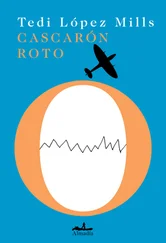Mark Mills - Amagansett
Здесь есть возможность читать онлайн «Mark Mills - Amagansett» весь текст электронной книги совершенно бесплатно (целиком полную версию без сокращений). В некоторых случаях можно слушать аудио, скачать через торрент в формате fb2 и присутствует краткое содержание. Жанр: Старинная литература, на русском языке. Описание произведения, (предисловие) а так же отзывы посетителей доступны на портале библиотеки ЛибКат.
- Название:Amagansett
- Автор:
- Жанр:
- Год:неизвестен
- ISBN:нет данных
- Рейтинг книги:5 / 5. Голосов: 1
-
Избранное:Добавить в избранное
- Отзывы:
-
Ваша оценка:
- 100
- 1
- 2
- 3
- 4
- 5
Amagansett: краткое содержание, описание и аннотация
Предлагаем к чтению аннотацию, описание, краткое содержание или предисловие (зависит от того, что написал сам автор книги «Amagansett»). Если вы не нашли необходимую информацию о книге — напишите в комментариях, мы постараемся отыскать её.
Amagansett — читать онлайн бесплатно полную книгу (весь текст) целиком
Ниже представлен текст книги, разбитый по страницам. Система сохранения места последней прочитанной страницы, позволяет с удобством читать онлайн бесплатно книгу «Amagansett», без необходимости каждый раз заново искать на чём Вы остановились. Поставьте закладку, и сможете в любой момент перейти на страницу, на которой закончили чтение.
Интервал:
Закладка:
Then there was the vastness of the Registry Room with its seething mass of outlandish humanity—men in dresses, others with whiskers that reached to their waists, women with their faces shrouded in veils, children with pointed shoes that curled at the end—the deafening clamor of their unintelligible voices rising to the rafters as they slowly shuffled forward. A man behind a tall desk fired questions at their father, and then they were out, down the stairs, into the rain.
They were greeted warmly in their own tongue by a man with a kindly face. He ruffled the boys’ hair and thrust candy into their hands, helped them recover their baggage then led them over to the Manhattan ferry. Valentin Aguirre was something of an institution for Basque immigrants, many of whom passed through his New York boarding house, Eusko-Etxea, on their journeys westwards to Nevada and Idaho. Most of the guests were single young men, looking to make their fortunes in the New World. Others were married, with wives and children back home, who would be joining them once the cost of their passage had been earned out west. A widower with two young sons was a novelty, drawing bucket-loads of sympathy from the serving girl in the dining room, who kept seizing Conrad and Antton to her ample bosom, until one joker proclaimed, to everyone’s amusement, that his mother was also dead.
Guests tended to stay no more than a few days, time enough to recover from the crossing while Valentin arranged their railroad tickets for the onward journey. And it would have been no different for them if their father hadn’t struck up conversation in the barroom with a fellow by the name of Eusebio Landaluce. He was tall, with a stooping gait and a feral expression that belied his good nature. He laughed heartily at the slightest inducement and he was immensely proud of his black Borsalino hat, which, he swore blind, was made from the hairs of wild Argentinian rabbits. He plucked coins from behind the boys’ ears, stuffed his silk kerchief into his fist only for it to vanish before their disbelieving eyes. He made his ears dance, his nose wiggle, and he could break wind on command.
After they had been dispatched upstairs to bed, Eusebio regaled their father with tales of woe out West. He told of Basques reduced to little more than slavery by the owners of the big sheep companies, pitchforking hay and mucking out lambing sheds from dawn till dusk. The winter camps of the sheepherders were a sight to behold, he said. He had seen families dumped in the mountains with no more than a patched tent, some bedrolls, a pot-bellied stove and a 30/30 rifle for fending off the bears, wolves, coyotes and cougars. And when you weren’t defending yourself or the flock against wild animals, there were the cowboys to contend with. Fierce feuds raged between the ranchers and the sheepherders over the best pastureland. Then there were the kids in the street, the ones who’d spit on you and call you ‘black bascos’ or ‘dirty Catholic’. And so he went on, misery heaped upon hardship and suffering, a grim catalog of wretchedness.
When their father woke them the next morning and announced that they would be staying in New York, that Eusebio was going to find a place for them to live, they greeted the news with enthusiasm. Of course they did. They hadn’t laughed so much in over a year, not since their mother died. Even when they set eyes on the pitiful little apartment that was to be their home, their opinion of Eusebio never faltered. It later emerged that he had vacated the place that very morning, that the sums he took off their father by way of rent were excessive, to say the least, and no doubt more than covered the cost of the improved accommodation to which he’d decamped. All this they forgave him, and more besides, for he was true to his word.
He found a woman, Irena, to care for the boys during the day, to cook for them and teach them English. She was a spry little Lithuanian with a fierce temper and a questionable grasp of the language, but she quickly grew fond of them and let them know it. Obsessed with personal hygiene, she was always dragging them off to the public showerbath on 11th Street between A and B Avenues. It was Irena who introduced them to the neighborhood, pointing out the whores and the hustlers, the crazies and the pickpockets as she scuttled along, her bag clutched tightly to her breast.
On her days off, the boys would roam further afield, heading for South Street, the East River waterfront, with its forest of masts, the windjammers and clippers gathered cheek-by-jowl, their bowsprits sticking out over the street, sailors and longshoremen scuttling to and fro, offloading cargo or filling their bellies with chowder at the small eating places across from the pierhouses. They didn’t know what drew them here, not at the time. Only later did they realize that the sea was already in them.
Irena’s presence lent a much-needed order to their lives, as well as freeing their father to pursue his ‘business’ with Eusebio. It was an improbable partnership, almost comical—their father grave and thoughtful, Eusebio a babbling bundle of nerves—and for several months there was little to show for it. Then suddenly the apartment started to fill with furniture, and meat appeared on the table with increasing regularity.
The source of their new-found wealth was one of the many harebrained schemes Eusebio was always hatching. Most of them foundered, the triumph of wild optimism over common sense. This one was no different, except that it worked. They bought show programs from theater doormen, selling them on at a profit to errant husbands or wives in need of an alibi for their whereabouts that evening, something to drop in front of their unsuspecting spouses. As the business grew, they extended the service to include used ticket-stubs from senior ushers. Clients were sourced through a spreading network of saloon barmen, and runners were employed to handle the distribution.
Reduced, as they became, to the position of overseers, Eusebio and their father spent more time around the apartment. Dinner was always a riotous affair—laughter in the home was more precious than gold plate, Eusebio used to say—and it was generally followed by several hands of mus. Conrad was always paired with Eusebio against his father and brother, which stung a little but invariably resulted in victory, mus being a game of bluff and deception, Eusebio being a master of both.
The business continued to prosper, the money kept rolling in, and before long they moved to a much larger three-room apartment on the second floor. This was a matter of grave concern for Irena, who believed that to relocate downwards in the same building brought bad luck.
She was wrong.
At midnight on 16 January 1920, the Eighteenth Amendment to the Constitution came into effect.
Prohibition, thought Conrad, without Prohibition I wouldn’t be standing here on the ocean beach, casting into the surf. Not with much success, as it happened. The prospect of landing a fish for his supper was fading fast.
He reeled in, cut a fresh length of squid and fastened it to the hook. Five more casts, he told himself, then he’d throw in the towel.
On the fourth cast he felt a bite and struck. The line thumped taut; the rod craned its slender neck. Big enough for supper, and then some. But what was it? Was he right? Could they be here already, so early in the season?
‘Damn. Hell. Damn. Damn…’
He glanced left. Twenty yards down the beach a woman was hopping around at the water’s edge, straining to examine the sole of her bare foot. She lost her balance and tumbled backwards on to the sand. She looked over at him helplessly, and as she did so, the tension went out of the rod.
The fish was making a play for freedom, running at the shore. She hadn’t slipped the hook, there was still life in the line, he could feel the tremor in it. He reeled in as fast as he could, just fast enough as the fish broke to the westward. Any more slack and the ploy would have worked. But he had her now, she was tiring, resigned to the inevitable. No. She broke again, running eastward this time, stripping twenty yards of line from the reel. A fighter.
Читать дальшеИнтервал:
Закладка:
Похожие книги на «Amagansett»
Представляем Вашему вниманию похожие книги на «Amagansett» списком для выбора. Мы отобрали схожую по названию и смыслу литературу в надежде предоставить читателям больше вариантов отыскать новые, интересные, ещё непрочитанные произведения.
Обсуждение, отзывы о книге «Amagansett» и просто собственные мнения читателей. Оставьте ваши комментарии, напишите, что Вы думаете о произведении, его смысле или главных героях. Укажите что конкретно понравилось, а что нет, и почему Вы так считаете.











